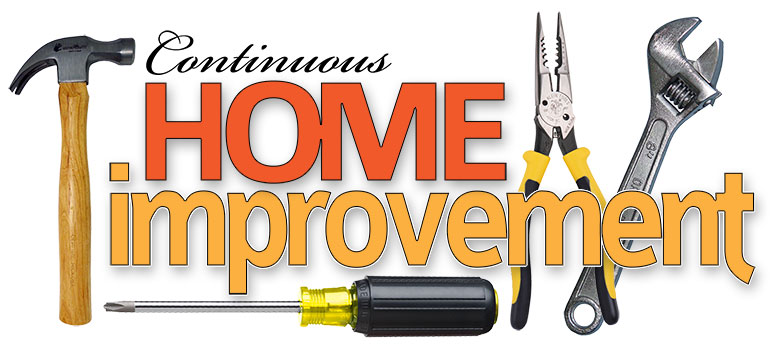Continuous Home Improvement
August 31, 2016 | Filed under: Newsletter Articles,Uncategorized

Have you heard of the term “Continuous Improvement”? Chances are that this phrase is not completely foreign to you. We hope though, that the phrase “Continuous HOME Improvement” is NOT one that you regularly use – unless, of course, you’re binge watching “Tim The Tool Man” reruns.
However, many of us, as homeowners, do find ourselves in a continuous cycle of fixing this, repairing that, improving these, replacing those. If that has ever described your life, then you will agree that the corner of “Home” and “Repair” is not a fun place to live!
While home maintenance is a “necessary evil,” there are often ways to make significant improvements to your home that lessen or even eliminate the need for future repairs. Thousands of homeowners each year discover that a Classic Metal Roof is their way to permanently end the vicious cycle of repairing and replacing their roofs. Like so many other items in our homes, we find that a metal roof is a way to make a single larger investment and avoid the hassles and total expense of many smaller investments over time.
One of our Core Values here at Classic is “Continual Improvement.” The concept is: “We are dedicated to continual improvement through relationships that encourage and act upon input from customers and team members.” We realize that, through this Core Value, it’s never good enough to be “holding your own” – we must always be striving to be better in terms of quality, product innovation, and customer service – all to better and more fully meet the needs of our customers.
“Continuous Improvement” is a fairly common term in manufacturing today, with roots going back to the 1950s. While we saw the Japanese initially grasp and make use of this concept, it has since spread to the US and other countries as well. We want to share a bit on the history of Continuous Improvement:
After the US defeated Japan in World War 2, General Douglas MacArthur sent several American experts to Japan. These experts were supposed to instruct the Japanese about the best way for them to rebuild their country. Among these professionals was Dr. W. Edwards Deming, a statistician who specialized in working with censuses. Though he traveled to Japan to help the Japanese with a census of their own, he noticed how new industries were struggling and decided to focus more on advising them.
Deming began regularly visiting Japan in the mid-1950s and instructing the Japanese to concentrate on improving every detail of their manufacturing processes rather than simply looking at the results. Over the next couple of decades, a variety of Japanese businesses adopted Deming’s practices. One of these businesses, Toyota, developed its own practices such as Just In Time (JIT) and Total Quality Management, or TQM.
It was not until the late 1970s and early 1980s that American and European organizations noticed the advancements in Japan and embraced similar practices. These practices, known as kaizen (change for the better), share a fundamental belief in continuous improvement and continue to influence American manufacturers today.
As we think about the work of Dr. W. Edwards Deming and its impact on us, we want to share the following three quotes from him which we hope you enjoy:
“It is not enough to do your best; you must know what to do, and then do your best.”
“No one knows the cost of a defective product – don’t tell me you do. You know the cost of replacing it, but not the cost of a dissatisfied customer.”
“If you do not know how to ask the right question, you discover nothing.”
We hope that, for you, “Continuous Improvement” means adding products to your home that will save you time, money, and aggravation. If you have any questions we can help with, please email our own nationally recognized metal roofing expert, Todd Miller, at todd@asktoddmiller.com or browse our website. We are happy to help you with questions pertaining to roofing, ventilation, insulation, and other things.
